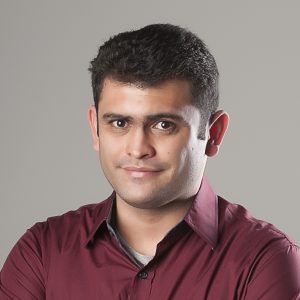In-network neural networks: Challenges and opportunities for innovation
Abstract
The quest for self-driving networks poses growing pressure to manage network events at a nano-second scale. In this talk, I will make a case for leveraging programmable forwarding planes to achieve self-driving networks and respond to their dynamism in real time by in-network intelligence and without performing traffic steering/mirroring to centralized management solutions (intelligent or not). Throughout the talk, I will briefly cover preliminary ideas in the in-network neural networks field and discuss the technical challenges of running machine learning techniques entirely in the forwarding plane. We also highlight potential use cases of having an autonomous intelligent network capable of self-adapting to dynamic network behavior changes with minimal to no human intervention, including smart network telemetry, smart traffic engineering, real-time flow classification, and network tomography.
Speaker
Weverton Cordeiro has been an Assistant Professor since 2017 at the Institute of Informatics (INF) of the Federal University of Rio Grande do Sul (UFRGS). He obtained his PhD degree from that university in 2014.
He is also a member of the Graduate Program in Computer Science (PPGC) at UFRGS, qualified with the highest mark (CAPES 7), and since 2018 he is a Researcher of the Brazilian National Council for Scientific and Technological Development (CNPq), with the PQ-E scholarship. His full curriculum vitae is available here.
His research is generally focused in the area of computer networks. Currently, his interests include topics such as: community networks (with a focus on bridging the digital divide and designing low-cost devices for connectivity in the Amazon region); blockchain (secure transaction verification); software-defined networking (metering, monitoring and security); programmable forwarding planes (programmable switch virtualization, data plane monitoring, forwarding software verification); and network function virtualization (virtual function mapping and chaining).
He has recently started working on the application of machine learning in public health (design of mobile applications for mosquito tracking) and e-commerce (user identification in shared accounts). In addition, he is involved in large-scale fault-tolerant experiments, and maintains an active interest in machine learning.

Universidade Federal do Rio Grande do Sul
Brazil
